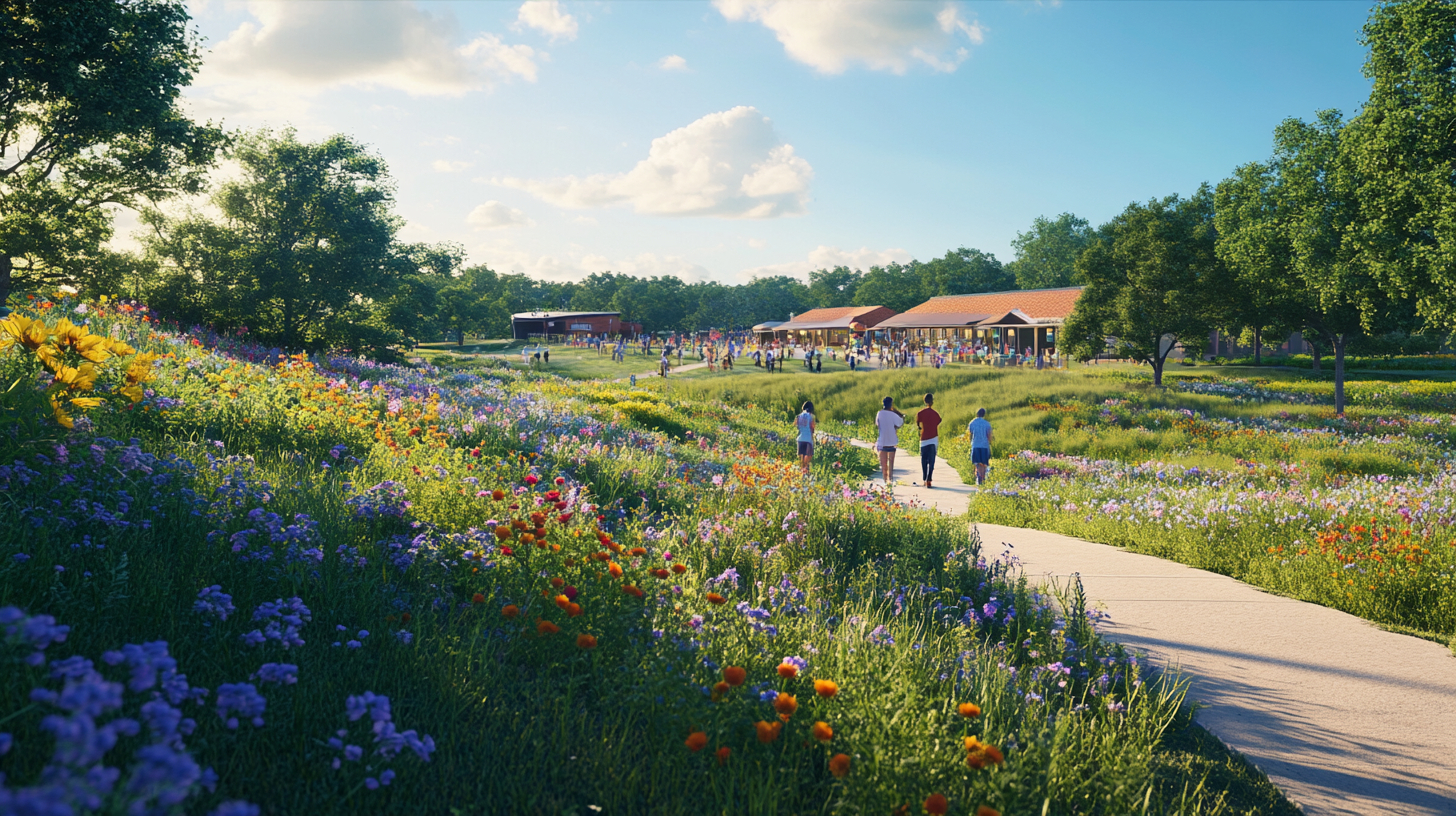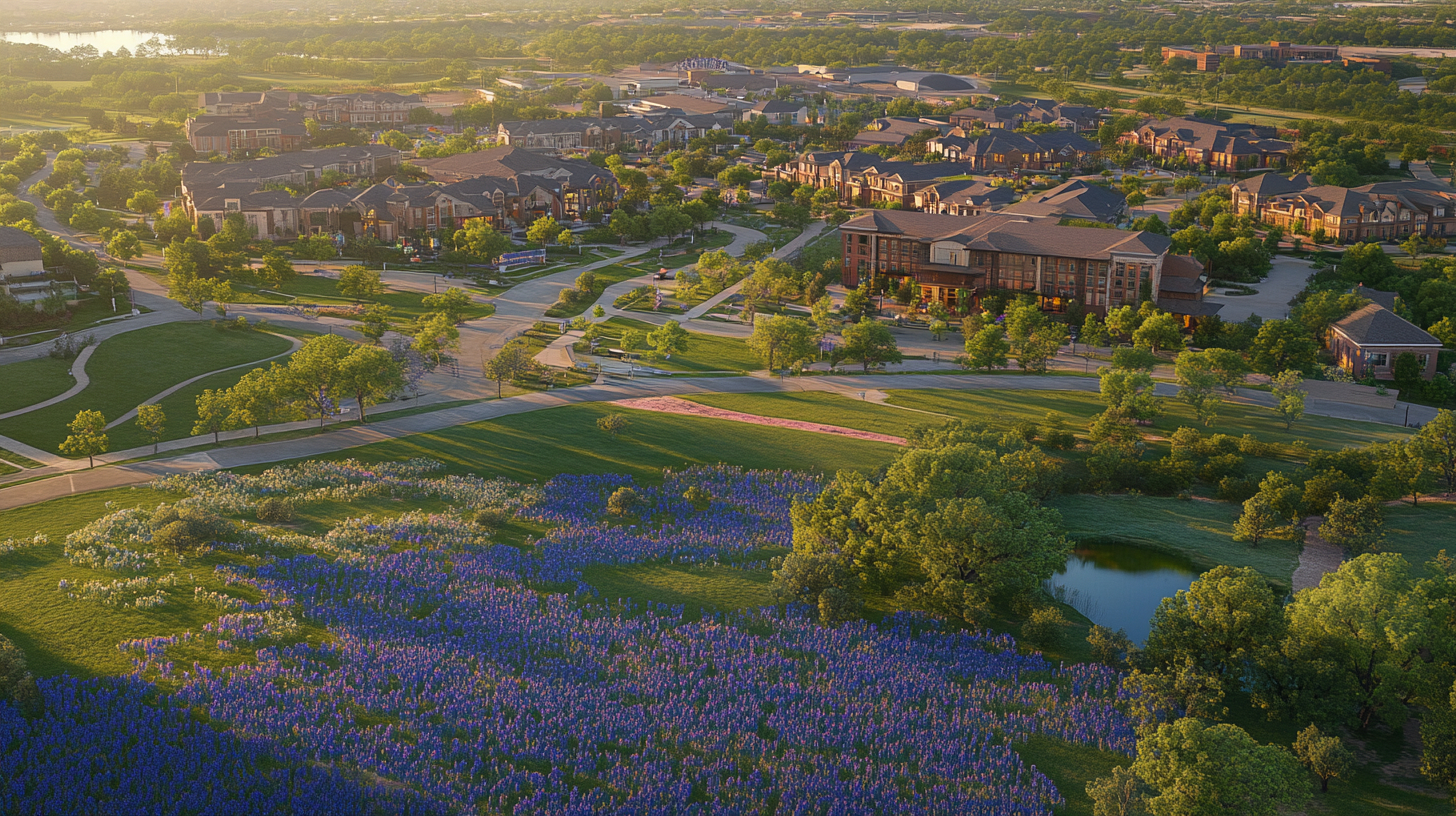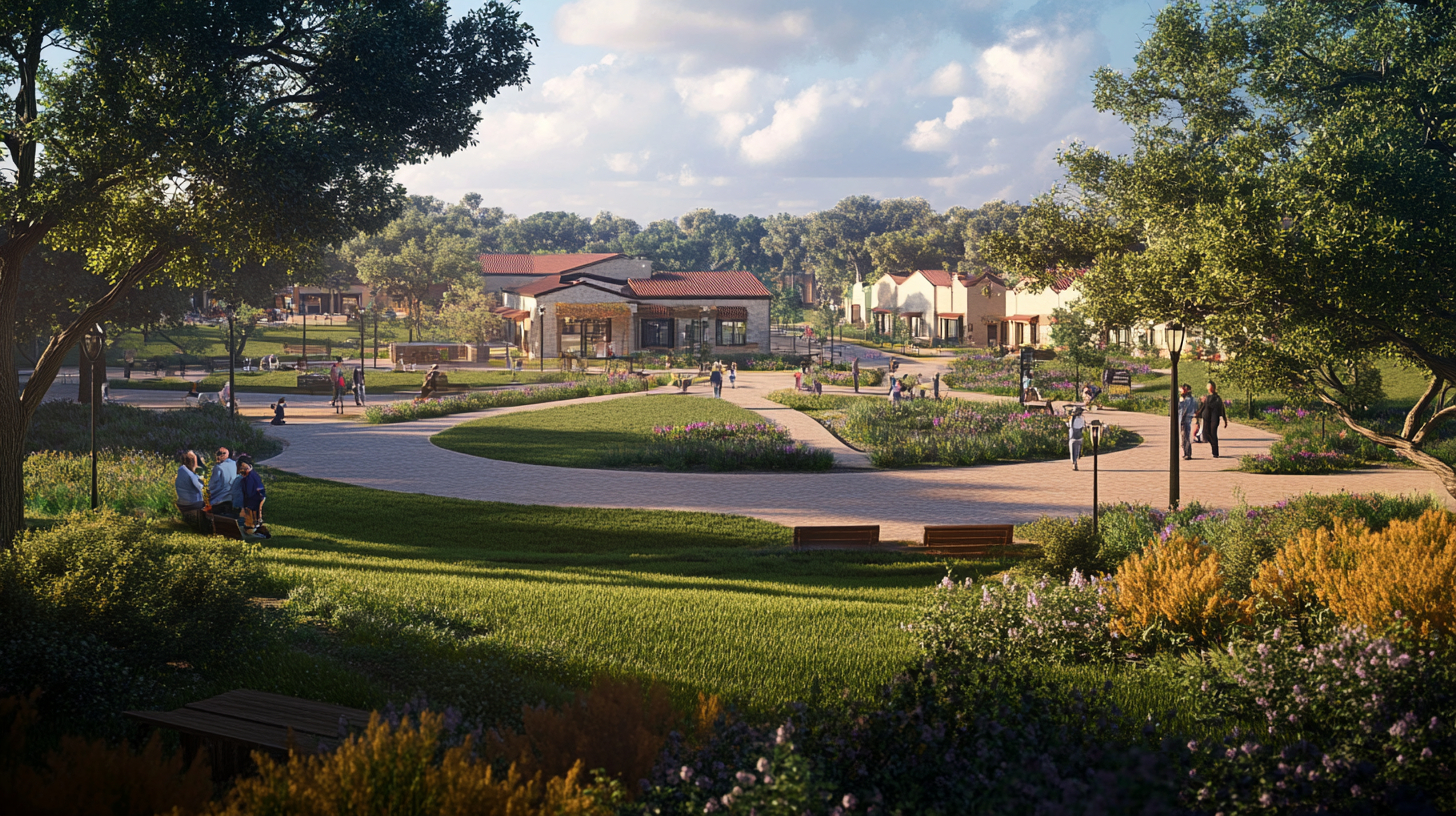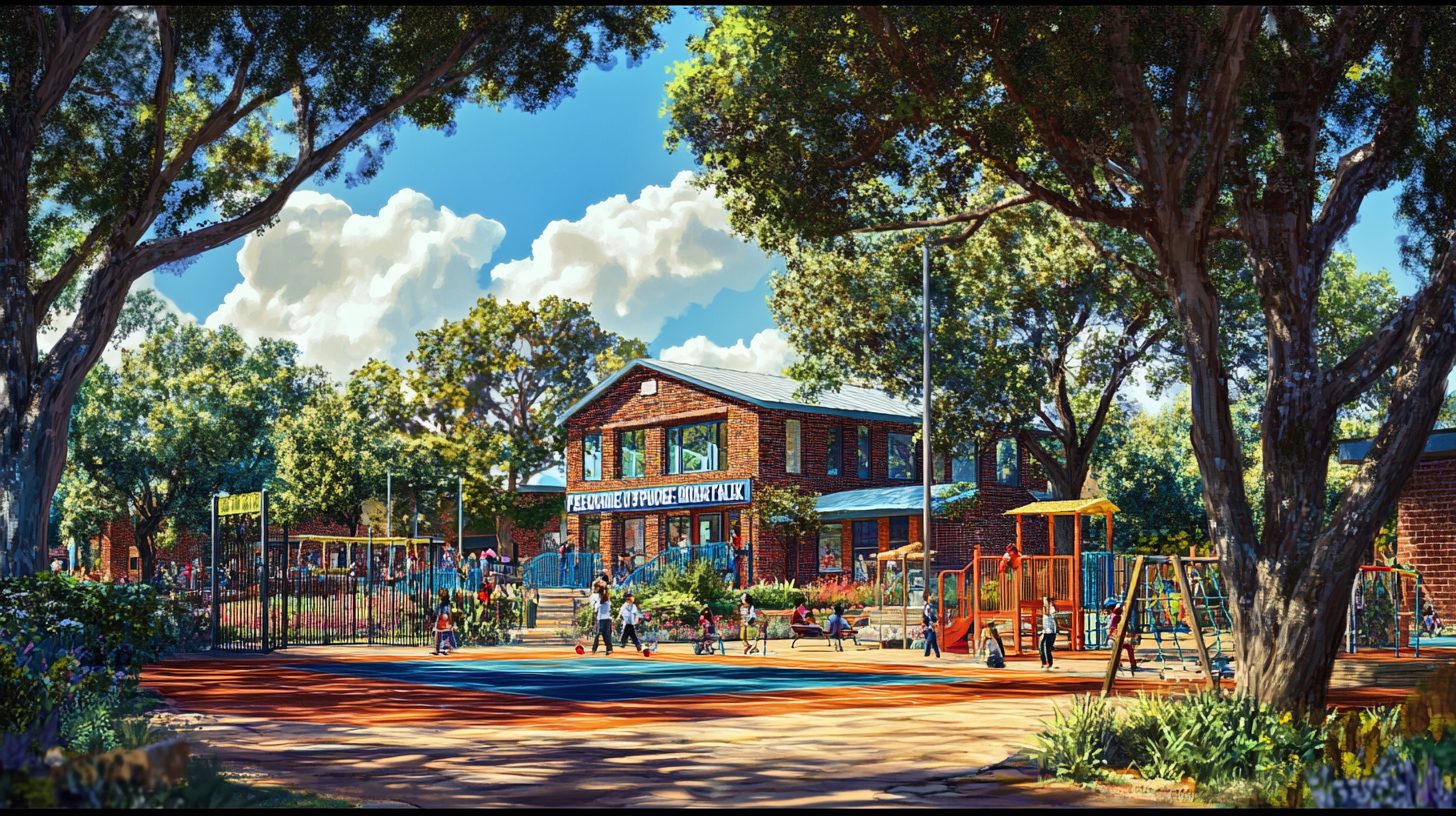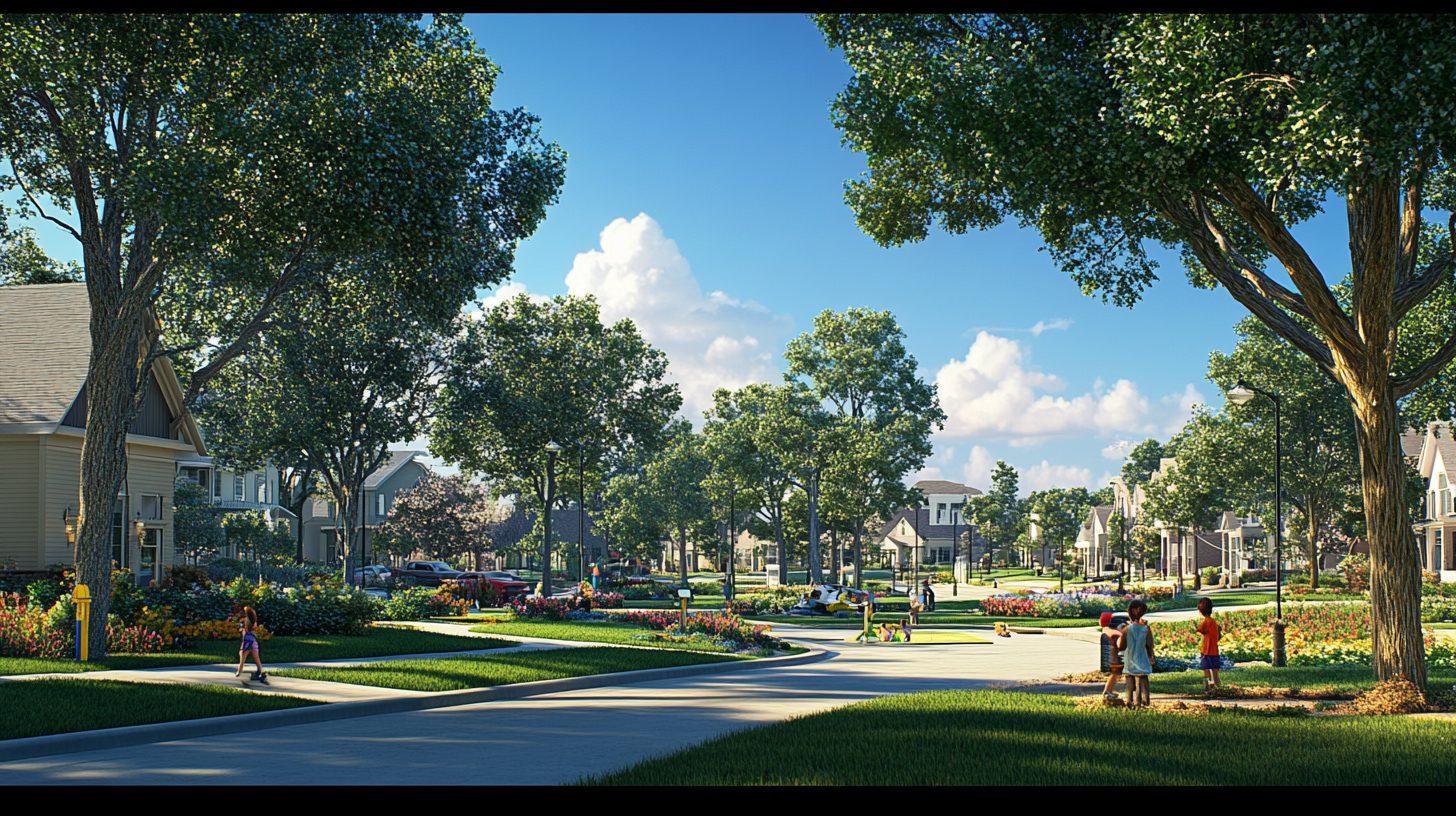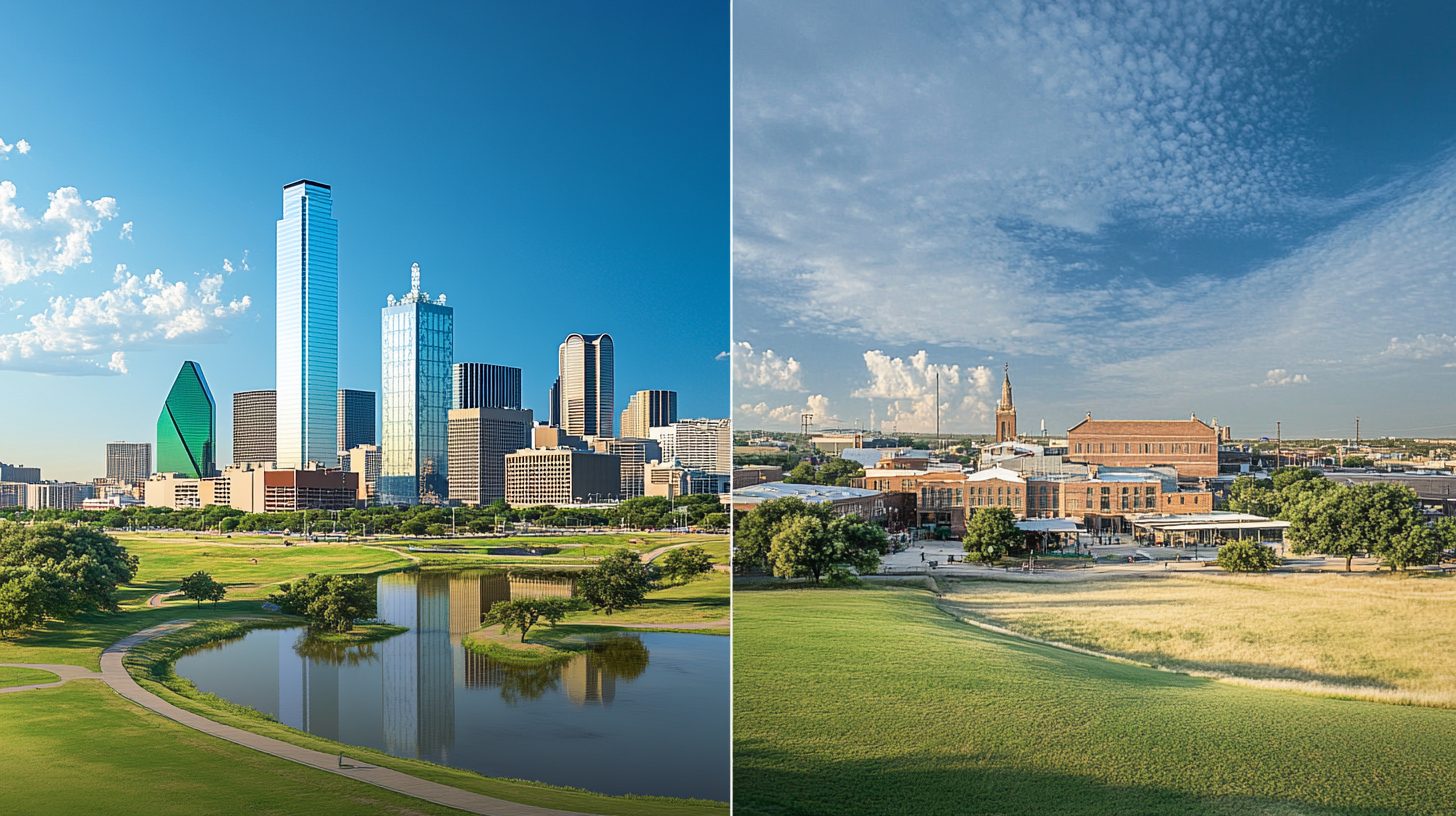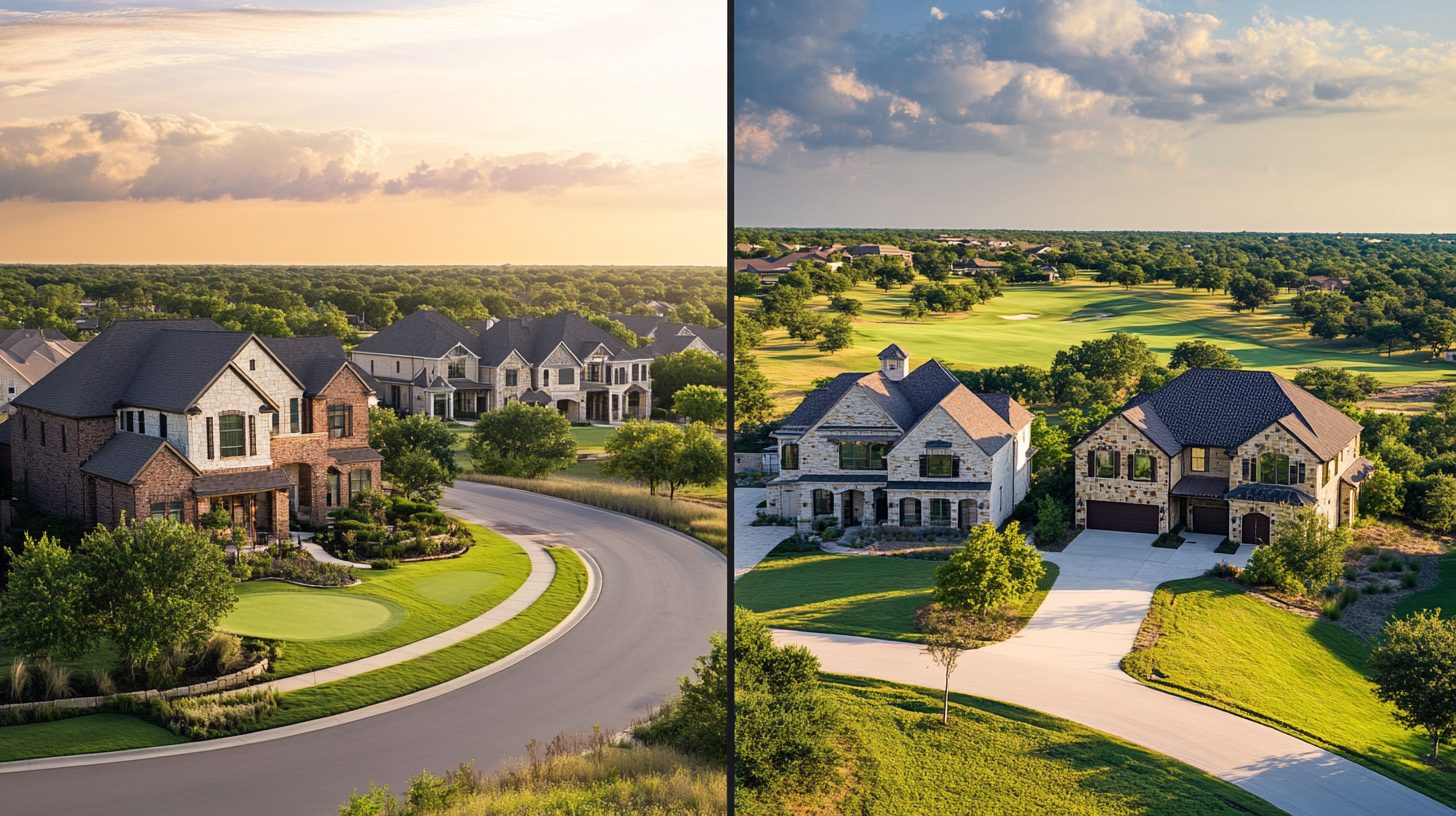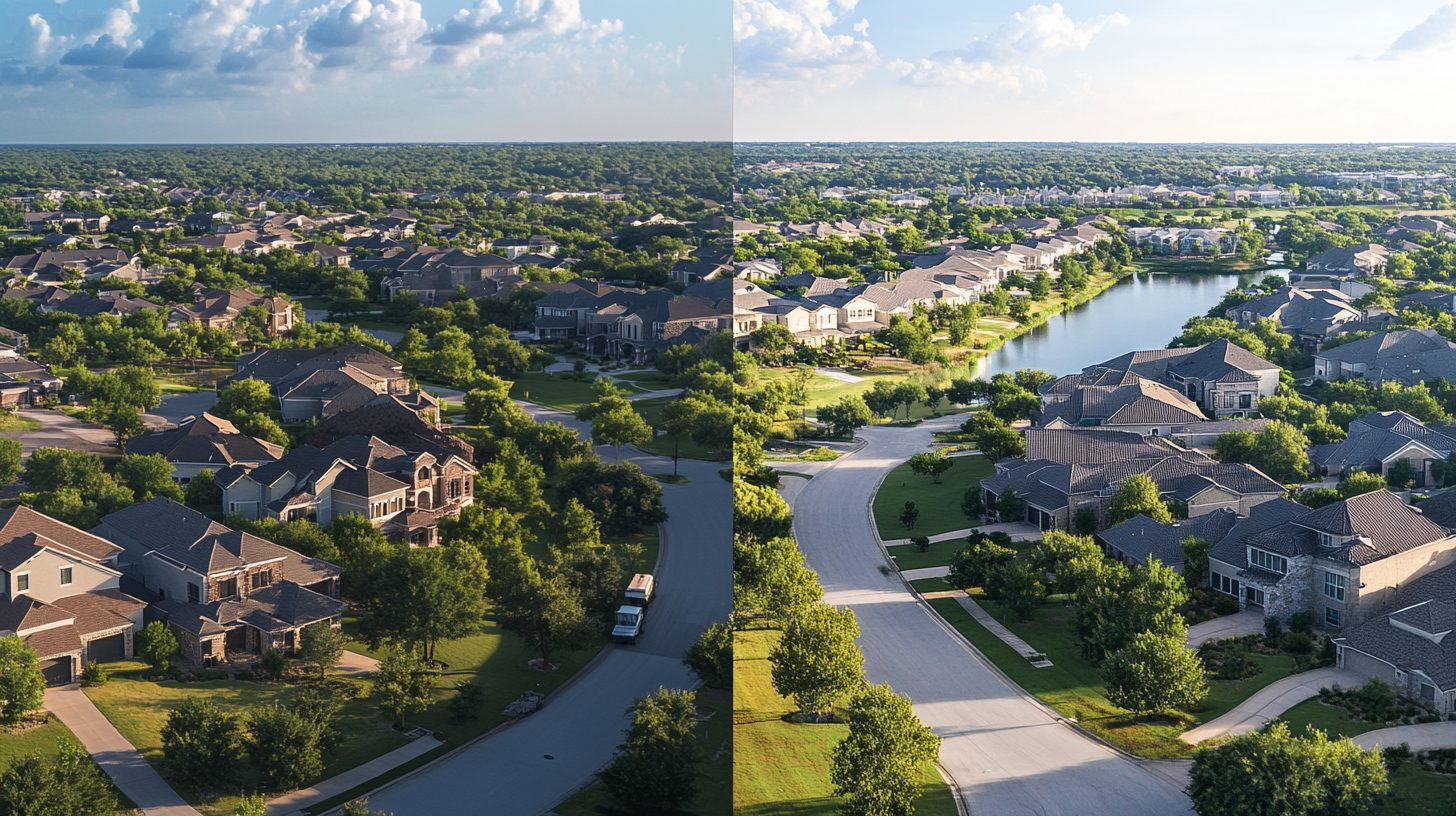Overview
Fort Worth, Texas—often overshadowed by Dallas—has been quietly churning out its own distinct vibe for years. Sitting in the western half of the DFW Metroplex, it’s home to nearly 950,000 people in 2025 and still counting. What’s the draw? A laid-back cowboy meets cosmopolitan feel, a surprisingly diverse food scene, and a cost of living that makes big-coast ex-pats do a double take. People are definitely moving in, lured by affordable housing (at least compared to places like Austin or Houston) and a job market that’s buzzing in tech, healthcare, and logistics. But is it all honky-tonks and sunshine? Not exactly. Fort Worth has its own set of ups and downs. Buckle up—we’re about to dig into both.
Pros of Moving to Fort Worth
Let’s put it bluntly: if you’re looking for a city with a strong economy, tolerable home prices, and more culture than you might expect, Fort Worth lands on the shortlist. Let’s break down why.
Booming Job Market & Economy
DFW is one of the fastest-growing regions in the country, and Fort Worth is no slouch in that growth spurt. Big companies like Lockheed Martin, American Airlines (nearby in Dallas), and a slew of logistics hubs have set up shop. The energy sector—both traditional oil and gas, plus emerging renewables—remains a big player. And if you’re into startups or tech, the city’s incubating more homegrown ventures than you might guess. With that, comes a broad range of job options, from white-collar corporate gigs to hands-on trades.
Affordable Living (For Now)
Texas real estate prices have been climbing, but Fort Worth is still more wallet-friendly than, say, Austin or Dallas proper. You can snag a decent single-family home without selling a kidney, though the days of rock-bottom deals are slipping away as the city grows. Groceries, gas, and general expenses also trend lower compared to coastal metros. Overall, if you’re tired of insane rents or million-dollar “starter” homes, Fort Worth might feel like a breath of fresh air.
Culture & Entertainment (Cowboys, Museums, & More)
Yes, Fort Worth is proud of its Western heritage—the Stockyards alone are evidence of that—but don’t box it in. The Cultural District boasts world-class art museums like the Kimbell and the Modern Art Museum of Fort Worth, and the Near Southside area is flush with indie shops, breweries, and live music venues. Sure, you can find the line dancing and rodeos in the Stockyards, but you can also chill at a jazz lounge or dive bar the next night.
Family-Friendly Activities
The city is surprisingly kid-friendly: Fort Worth Zoo is often rated one of the best in the nation, the Fort Worth Museum of Science and History offers hands-on exhibits, and Trinity Park is perfect for bike rides or lazy picnics. Parks and recreation get a lot of local funding, meaning more playgrounds, walking paths, and community events that keep families engaged year-round.
Food Scene & Local Flavors
Barbecue and Tex-Mex reign supreme in Fort Worth, but that’s just scratching the surface. The city’s restaurant scene has expanded to include everything from vegan bistros to upscale sushi joints, thanks to an influx of new residents from around the world. Venture into the South Main Village, West 7th, or Magnolia Avenue, and you’ll stumble on food trucks, microbreweries, and quirky dessert shops.
Generally Laid-Back Vibe
Compared to the hustle of Dallas, Fort Worth keeps it more relaxed. You’ll still find traffic (this is Texas, after all), but the overall pace is slower. There’s a neighborly warmth—people hold doors, wave hello, and strike up conversations in line at the grocery store. It’s not Mayberry, but it’s definitely friendlier than some bigger cities.
Why It Matters
If a stable(ish) economy, moderate cost of living, and a unique cultural blend check your boxes, Fort Worth deserves a look. The city is broad enough to suit suburban families, single professionals, and everyone in between, without crushing your bank account or burying you in endless crowds.
Cons of Moving to Fort Worth
Still not convinced it’s all sunshine and tacos? Fair enough. Here’s the gritty side of Cowtown.
Public Transportation Woes
Fort Worth’s public transit is… let’s call it “developing.” The Trinity Metro has buses and a rail line (TEXRail) that connects Fort Worth to DFW Airport, but if you want to navigate the city without a car, good luck. Most neighborhoods demand you own wheels, and the city is sprawling—commutes can be long. If you’re coming from a city with stellar transit (like Chicago or NYC), brace for some frustration.
Professional Sports? Dallas Gets All the Love
If you’re dreaming of NFL Sundays in your hometown stadium, you’ll have to zip over to Arlington or Dallas. The Cowboys, Rangers, Mavericks, and Stars all technically call the Dallas side of the metro their home turf (though the Cowboys and Rangers play in Arlington). Fort Worth does have some minor league teams (Panther City Lacrosse, for instance), and TCU college sports can be rowdy, but if major league mania is your jam, you’re commuting to watch them.
Heat, Humidity & Allergies
Texas is hot. Fort Worth summers routinely flirt with triple digits, and the humidity can cling to you like an unwelcome hug. Then there’s spring allergy season—when the wind shifts, pollen can swarm in like a plague, leaving you sneezing for days. If you’re heat-averse or prone to allergies, stock up on A/C units and nasal spray.
Sprawl = Traffic
DFW is famously car-centric, and Fort Worth’s highway network is no exception. Rush hour on I-35W or Loop 820 can devolve into a slow crawl, especially as more people move in. While not as gridlocked as parts of Dallas, the city’s growth means infrastructure sometimes struggles to keep up. At least gas is cheaper here than in many states, but you’ll definitely burn your fair share in traffic.
Limited Nightlife for the Big City Crowd
Yes, Fort Worth has bars, clubs, and a decent music scene. But if you’re looking for an all-night rager or the glitzy vibe of a mega-club, you may need to venture to Dallas. The city does have the West 7th area and the Stockyards for a night out, but it’s not going to match the scale of Deep Ellum or Uptown in Dallas. If you’re chasing that neon-lit, after-2 a.m. crowd, you’ll be traveling across the Metroplex.
Property Taxes & Homeowners Insurance
Texas doesn’t have a state income tax, which might sound great—until you see your property tax bill. Fort Worth’s property tax rates can be a punch in the gut, and homeowners insurance in hail-prone North Texas isn’t exactly cheap. Pair that with rising home values, and you’re shelling out a good chunk of change in monthly mortgage extras.
Why It Matters
Fort Worth might keep the cost of living relatively low, but the city still has friction points: reliance on cars, scorching summers, no major pro sports team to rally behind, and mounting infrastructure strains. If you can handle these challenges, the city’s rewards might still outweigh the drawbacks. But if you’re big on robust public transit or can’t stand 100-degree summers, consider them big red flags.
Wrapping Up
Fort Worth is a city on the move—expanding job opportunities, a housing market that’s still more accessible than other big Texas metros, and a unique blend of cowboy culture and modern urban flair. On the flip side, you’ll deal with hot summers, a car-dependent lifestyle, and fewer major sports teams calling the city home. Ultimately, whether Fort Worth fits your vibe depends on your tolerance for Texas weather, your need for easy commuting, and how much you value that laid-back, neighborly environment. If you’re up for it, you’ll find a place that fuses southern hospitality with just enough city edge to keep things interesting. Make no mistake: Cowtown might just rope you in for the long haul—if you can handle the ride.
Fort Worth Real Estate Market
2025 Snapshot: Inventory & Prices
So, how’s Fort Worth’s real estate scene shaping up in 2025? In a word: competitive. The city has grown significantly over the past few years, pushing the median home price to around $350K–$380K, depending on which source you check. While that might sound steep compared to historical Fort Worth prices, it’s still more approachable than Dallas’s skyrocketing numbers. Inventory remains tight, especially in hot neighborhoods near downtown or the cultural district.
Best Places to Live
- Tanglewood: Affluent, family-friendly area known for top-rated schools and mature trees. Expect to pay a premium, but if you want a classic Fort Worth neighborhood vibe, this is it.
- Fairmount: Historic bungalows, walkable streets, and a boho-chic vibe. Perfect for fans of older homes with a dash of artsy flair.
- Alliance / North Fort Worth: Newer master-planned communities, shopping centers, and proximity to major employers. It’s suburban sprawl, but convenient if you work in the area.
- Near Southside: Young professionals dig the local bars, restaurants, and walkability. More condos and townhomes popping up here each year.
Average Days on Market
Homes priced correctly often get snatched up within a month, sometimes faster in prime neighborhoods. Bidding wars aren’t uncommon—especially on move-in-ready properties under $400K. If a home lingers, it might be overpriced or need significant renovations. Buyers armed with pre-approvals (or, better yet, cash) have the advantage.
Good Market for Investors?
Fort Worth remains an interesting playground for real estate investors. Rents are on the rise, and demand for single-family rentals is high among newcomers reluctant to buy immediately. Flipping can still be profitable in older neighborhoods like Northside, Fairmount, or Stop Six, where older homes can be updated for decent margins. Just be mindful: competition from out-of-state investors has heated up, so deals aren’t as plentiful as they once were.
What About New Builds?
There’s a ton of new construction in the northern and western suburbs. These developments lure families with promises of top-tier amenities: community pools, nature trails, and quick highway access. Prices can start in the high $200Ks for smaller models but soar into the $500Ks+ for bigger floor plans or premium lots. Be prepared for potential waitlists or pricing escalations if materials become scarce.
The 2025 Outlook
Experts predict steady growth—Fort Worth’s population is still on the upswing, and the local economy keeps adding jobs. That means housing demand should remain relatively high, fueling stable or slowly climbing property values. However, if interest rates rise, you might see a modest slowdown in bidding wars. Overall, this is still a seller’s market, but buyers with solid finances can absolutely score a home with patience and persistence.
Bottom Line: If you’re thinking about buying in Fort Worth, don’t drag your feet. The city’s real estate scene is dynamic, with rising prices but still enough variety to fit most budgets. Investors, first-timers, and upgraders alike can find something—just be prepared to hustle if you want to snag the good deals.
FAQs
- Is Fort Worth cheaper than Dallas for housing?
Generally, yes. Fort Worth’s median home price is usually lower than Dallas, though the gap’s closing as more folks move in. - How bad is traffic in Fort Worth?
It can get rough during rush hour, especially on major highways like I-35W, but it’s typically less brutal than in Dallas or Houston. - What about the weather—does it really get that hot?
Summers can hover in the mid-to-high 90s, with triple-digit streaks. If you hate heat, you’ll need strong A/C and an even stronger iced tea game. - Which neighborhoods are best for families?
Tanglewood, Ridglea Hills, and many suburbs like Keller or Saginaw boast good schools and suburban amenities. Alliance area is also super popular for new builds. - Is Fort Worth’s public transportation any good?
It’s limited. Trinity Metro buses and the TEXRail exist, but most folks rely on cars. Plan to commute by road unless you live and work right near a transit line. - Does Fort Worth have a local sports scene?
The city mostly roots for TCU college teams. Pro sports are in Dallas or Arlington (Cowboys, Rangers, Mavs, Stars). Minor league and semi-pro teams are around, but it’s not the same scale. - Is investing in Fort Worth real estate still profitable?
It can be. The market’s competitive, but with a growing population and rising rents, there’s opportunity—if you do your homework and move fast.



